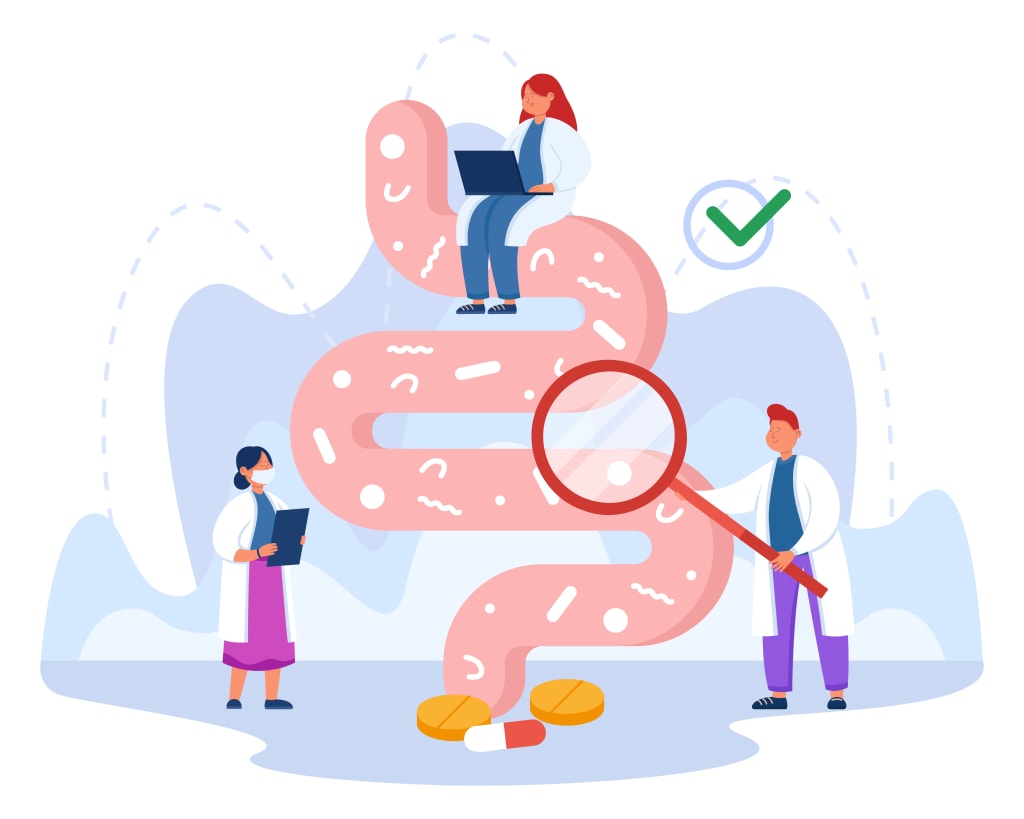
Are you feeling low, stressed, or anxious? Perhaps it's not just your mind, but your gut that needs attention. The phrase 'trust your gut' might be more than a metaphor. A growing body of research suggests that our gut health significantly impacts our emotional well-being. This article will explore this intriguing connection between gut health and emotions.
In recent years, scientists have discovered that our gut is not just a food-processing unit but functions as a 'second brain.' This 'second brain,' or the enteric nervous system, is a complex network of millions of neurons lining our gut. It communicates directly with our brain, influencing our moods and emotions.
Our gut hosts a diverse ecosystem of bacteria, known as the gut microbiota. A balanced gut microbiota is crucial for good physical and mental health. But how exactly does gut health affect our emotions?
The gut and brain are linked through a bidirectional communication channel called the gut-brain axis. When our gut microbiota is in balance, it sends positive signals along this axis, promoting feelings of calm and happiness. Conversely, an imbalanced gut microbiota can send negative signals, leading to feelings of anxiety and depression.
Numerous studies have supported the significance of the gut-brain axis. For instance, a study published in the 'Nature Microbiology' journal found that people with a more diverse gut microbiota had a lower risk of mental health issues. Another study, published in 'Psychosomatic Medicine,' found that probiotic supplements could reduce symptoms of anxiety and depression. A third study even revealed that transplanting gut bacteria from a mentally healthy person to someone suffering from depression could alleviate their symptoms.
It's fascinating to see how the balance of our gut microbiota can affect our emotional state. But this begs the question: how can we maintain a healthy gut, and in turn, a positive mood?
Firstly, diet plays a huge role. A diet rich in fiber and fermented foods can promote a balanced gut microbiota. Foods like yogurt, kimchi, and kefir are rich in probiotics, beneficial bacteria that support gut health. On the other hand, excessive consumption of processed foods and alcohol can harm our gut health. Consuming a wide variety of fruits, vegetables, whole grains, and lean proteins can provide your gut with the nutrients it needs to flourish.
Secondly, regular physical activity has been shown to enhance gut health. Exercise can increase the diversity of our gut microbiota, leading to improved mental health. Physical activity not only supports gut health but also reduces stress levels and improves mood, creating a positive feedback loop for mental wellness.
Thirdly, stress management is essential as chronic stress can disrupt our gut balance, leading to emotional distress. Mindfulness practices such as yoga and meditation can help manage stress levels, promoting both gut and mental health. Regular relaxation, adequate sleep, and healthy social connections also contribute to a balanced gut and a serene mind.
In conclusion, our gut health plays a pivotal role in shaping our emotions. By taking steps to nurture our gut health, we can potentially enhance our emotional well-being. This fascinating area of research opens up new possibilities for treating mental health issues through gut health interventions. So, the next time you experience emotional discomfort, remember to 'listen to your gut.'
Remember, your journey to understanding your health is a personal one, and this information should serve as a starting point. If you are experiencing serious emotional distress or suspect you might have a gut health issue, seek advice from healthcare professionals.
In addition to dietary adjustments and exercise, consider adding probiotics and prebiotics to your diet. Probiotics are "good" bacteria that help maintain a healthy balance in your gut, while prebiotics are types of dietary fiber that feed these beneficial bacteria. Foods like bananas, onions, and garlic are great sources of prebiotics, while probiotics can be found in fermented foods like kefir, sauerkraut, and certain types of yogurt.
Also, stay well-hydrated. Drinking enough water benefits your digestion and aids the function of mucosal lining in the gut, which in turn supports the balance and growth of good bacteria in your gut. While it might seem simple, hydration is often overlooked as an important part of gut health.
Moreover, avoid unnecessary antibiotics whenever possible. Antibiotics are designed to kill bacteria in the body and don't distinguish between good and bad bacteria. Overuse can disrupt your gut's healthy bacterial balance and may lead to health issues down the line.
Remember, while we're still in the early stages of understanding the gut-brain connection, the evidence is clear that a healthy gut contributes to a healthy mind. This article, alongside consultation with healthcare professionals, can guide you in making lifestyle changes that support both your gut and mental health.
In conclusion, as we uncover more about the intriguing gut-brain connection, one thing is clear: the path to better mental health may very well lie in our gut. The next time you're feeling out of sorts, it might not hurt to consider what's going on in your digestive tract. As the saying goes, "you are what you eat," and it seems this rings especially true when it comes to your mental health. By feeding your gut well, you're nurturing your mind, proving the age-old adage true: a healthy body indeed promotes a healthy mind.
Embrace this fascinating field of research and let it guide your journey towards optimal mental and physical health. Let's continue to explore, with the courage to unravel more about our body's beautiful complexities, starting with the gut-brain connection. And remember, when it comes to health, always listen to your gut.






Comments
There are no comments for this story
Be the first to respond and start the conversation.